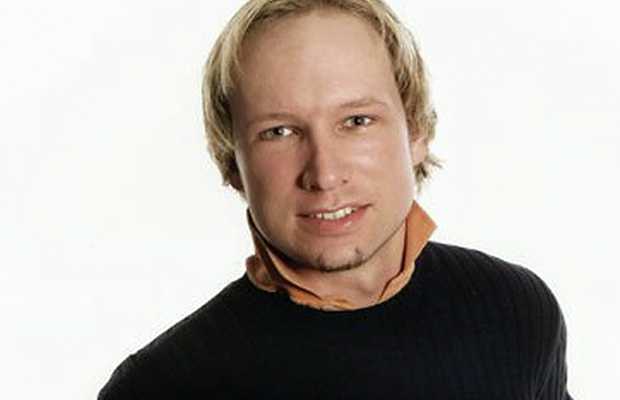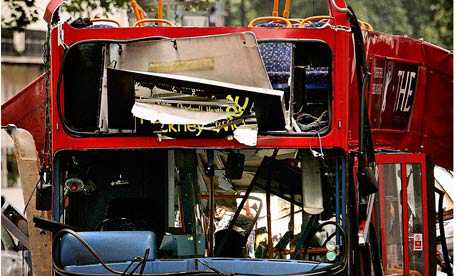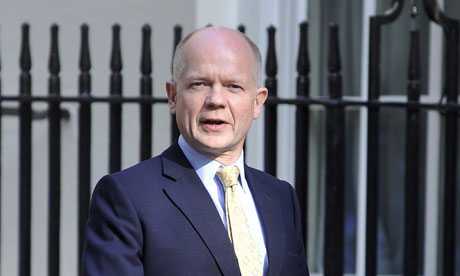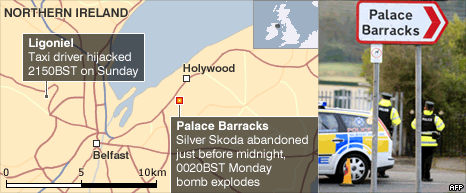 A hunt for possible British accomplices of the mass murderer Anders Behring Breivik is under way after it emerged that he began his deadly “crusade” after meeting other Right-wing extremists in London.
A hunt for possible British accomplices of the mass murderer Anders Behring Breivik is under way after it emerged that he began his deadly “crusade” after meeting other Right-wing extremists in London.
Before he carried out Norway’s worst terrorist atrocity, Breivik typed out a chilling 1,500-page description of his plans, written entirely in English and datelined “London, 2011”.
He signed the document “Andrew Berwick”, an Anglicised version of his name, and described his “mentor” as an Englishman he identified as Richard.
Scotland Yard counter-terrorism officers are now trying to establish whether Breivik visited London in recent years and whether he was part of a wider network preparing to carry out similar attacks.
The 32 year-old boasted that he was just one of up to 80 “solo martyr cells” recruited throughout Western Europe who were ready to follow his example of trying to overthrow governments tolerant of Islam.
He said he regarded himself as a successor to the medieval Knights Templar, and claimed to have been recruited at a meeting in London in April 2002, which was hosted by two English extremists and attended by eight people in total.
Any member of a political group that has allowed Muslims to migrate to their country is regarded as a “target” who deserves “the death penalty”, according to his writings.
He also spoke of being in touch with the far-Right English Defence League and made repeated references to British politicians, including Gordon Brown and Tony Blair, who were blamed for making London a global hub of Islamic terrorism.
In other developments yesterday:
• The death toll in the twin attacks on Oslo and the island of Utoya rose to 93, with five others still missing.
• Breivik’s father, a retired diplomat who once served in London, spoke of his “absolute horror”.
• Norwegian police were caught out despite having issued a warning in March of the danger that far-Right groups could be planning an attack.
• It emerged that the police response to the massacre on Utoya was hampered when a boat was overloaded with equipment and its motor stopped
• Breivik’s lawyer said his client regarded his actions as “atrocious but necessary”.
At a memorial service yesterday, Jens Stoltenberg, the Norwegian prime minister, was joined by the country’s king and queen in mourning the “national tragedy”.
Breivik spent nine years planning Friday’s atrocity, and spent three years writing his manifesto A European Declaration of Independence, which was emailed to 5,700 people hours before he detonated a bomb in Oslo.
The bomb, he made clear, was merely a diversion designed to draw police away from the real target, the Labour Party summer camp on Utoya. He even discussed his reason for disguising himself as a policeman — to cause “confusion and hesitation”.
But it is his detailed descriptions of meetings with British accomplices that has led to fears he may be part of a network of Right-wingers intent on mass murder.
Scotland Yard’s domestic extremism unit is trying to identify the seven other people who attended the inaugural meeting of the “European Military Order and Criminal Tribunal” of the “Knights Templar” in London in April 2002.
He wrote: “The order is to serve as an armed Indigenous Rights Organisation and as a Crusader Movement” and said the session was hosted by an English Protestant. Another English extremist was also present as well as French, German, Greek, Dutch and Russian delegates.
He also said an Englishman became his mentor. “He was the one who first described the ‘perfect knight’ … let’s call him Richard.”
He added that most of those at the meeting “were successful entrepreneurs, business or political leaders”.
A Scotland Yard source said Breivik was not thought to have visited Britain this year, but police were “making inquiries into any possible links to British extremists and liaising with the Norwegian authorities”.
MI5 is not currently involved in tracking down Right-wing extremists but sources admitted the attacks could force a change of tactics. One of the largest arms caches found in recent years in England was in the possession of a Right-wing terrorist in Yorkshire two years ago.
Breivik claimed to have had online conversations with members of the English Defence League and urged “them to use conscious strategies”. However, he dismissed the group as “naive fools” for refusing to sanction violence.
The EDL issued a statement saying: “We can categorically state that there has never been any official contact between him and the EDL.”
Breivik also wrote of using dum-dum bullets to cause maximum injury, and surgeons confirmed so many of his victims died because he had used similar ammunition.
Dr Colin Poole, from Ringriket Hospital in Honefoss, north-west of Oslo, said: “These bullets more or less exploded inside the body.”
Breivik even harboured ambitions of acquiring a nuclear weapon to hold Western governments to ransom and discussed the merits of using biological and chemical weapons to kill up to two million people.
The Telegraph



